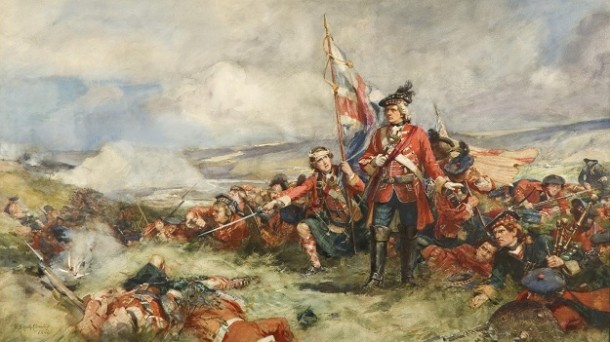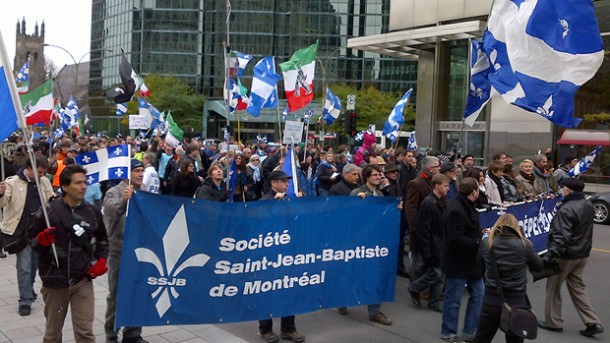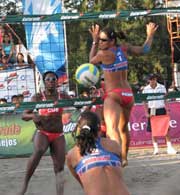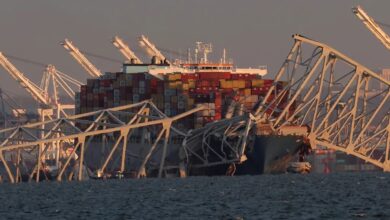French origin people in Quebec who want more independence than before, just can not be satisfied with a kind of Canadians,and France constantly affecting by cultural these people are creating irritability.
The last time Quebec had a sovereigntist government the invasion of Iraq had just gotten under way and there was a frantic international search for Saddam Hussein’s weapons of mass destruction.
French Canadians can not understand Canada is a country of origin the Anglo-Saxon British and France 200 years ago, had lost the war on the rights of Canada
Now Quebec voters will head to the ballot box Tuesday after 3,416 days of relative quiet on the national-unity front, with indications of that silence being shattered as polls point to the pro-independence Parti Quebecois being restored to power.
The final result, however, is far from certain given the potential for three-way vote splits that only compound unknown quantities like late shifts in voter sentiment and the strength of each party’s get-out-the-vote operation.
Party leaders made a last pitch to voters on the final day of the campaign Monday, driving home their key messages.
Marois continued to press for a majority mandate to rid the province of the scandal-dogged Charest Liberals; demand a transfer in powers from Ottawa; make peace with student protesters; create language and identity laws; and set her party’s sovereigntist agenda in motion.
“We don’t want to find ourselves in an election (again) in six months,” she said in Quebec City.
Charest argued the opposite: a vote for any party but the Liberals would lead to economic and political instability.
The premier has framed this election as a choice between “stability and job creation” and “referendums and the streets,” a reference to the near-daily student protests over tuition increases last spring. However, the student protests have mostly wound down and the issue hardly made news during the campaign.
At a sod-turning for Quebec City’s $400 million arena, Charest repeated his claim that a sovereigntist government could jeopardize the city’s chances of bringing back NHL hockey.
Quebec City is one of the areas of the province Charest had hoped to dominate but polls suggest he could lose seats to the new Coalition party. He told reporters it was more likely a team would return in “an economy that’s doing well rather than an economy that’s doing poorly.”
Coalition Leader Francois Legault, meanwhile, toured the hotly contested ridings north and south of Montreal, hammering away at his message of change.
“We will clean up government, we will clean up the bureaucracy,” he said at a news conference, flanked by star candidate Jacques Duchesneau, a former police chief and anti-corruption whisteblower.
While the leaders tried to sway voters, the Charest Liberals also filed a complaint Monday with provincial police over allegations of trick phone calls before Quebecers head to vote. The party said it had learned of a series of automated calls falsely made in the party’s name in the Quebec City region.
The alleged message was spoken mostly in English in the overwhelmingly francophone region. Other calls were made in Laval, a suburb north of Montreal, by people using an “aggressive tone” and claiming to be representing the Liberals, according to the party. Quebec’s elections office said it would investigate.
For Charest, whose party is ranked a close third in the polls, the election could be the end of a storied 28-year-career in provincial and federal politics.
As a young Progressive Conservative, Charest was made the youngest cabinet minister in Canadian history. As a champion of federalism, he was recruited to run for the leadership of the Quebec Liberals to take on the PQ and became premier in 2003.
His third consecutive term started on a high in 2008 as he brought the Liberals back to a majority and enjoyed strong public support. But his government was sideswiped by scandals, starting with allegations of corruption at the municipal level and later about ethical misdeeds among his own troops.
It took Charest two years to call a public inquiry. When one finally came, he called an election during the inquiry’s summer break.
He launched his campaign on a theme of stability — hoping that voters would reward him for standing up to the student protesters.
During the campaign, he tried to focus on the economy and job creation. He argued that a Quebec run by the PQ or Legault’s Coalition would mean more uncertainty and clashes with Ottawa.
He touted his Plan Nord, a northern development plan that promises to attract $80 billion in private and public investment and generate 20,00 jobs. The PQ, meanwhile, has called for an increase in mining royalty rates and describes his plan as a resource sellout.
The Coalition, formed ten months ago, has according to surveys gained a strong contingent of support. It promises to set aside the debate over sovereignty to focus on more pressing issues.
Legault, a former PQ cabinet minister and committed sovereigntist, says he would cut taxes for the middle class and provide more support for small businesses.
He also wants to make major changes to the education system, including eliminating school boards and extending high school hours to a 9-to-5 schedule. He also promises to provide every Quebecer with a family doctor.
Marois says a PQ government would gradually work toward sovereignty, beginning by taking back powers from Ottawa in areas such as immigration and employment insurance.
The PQ would also extend the PQ’s language laws to small businesses and the province’s junior colleges; restrict religious headwear in public institutions; and create a new Quebec citizenship distinct from Canada.
If the federal government, or the Supreme Court of Canada, steps in to block any of these measures the PQ says it will add each example to its list of concrete arguments for why Quebec would be better off on its own, as a country.
A number of commentators, mainly outside Quebec, have branded the PQ platform as xenophobic. But the PQ says it’s simply a question of ensuring francophone Quebec’s cultural survival — and if such a thing can’t happen within Canada, it says, the province should head its own way.
Marois also says she would undo Charest’s increases to university tuition of $254 per year over seven years, and propose tying any future increases to inflation. But she would hold off on a final decision until after a summit involving student groups.
Marois has been forced to back down, water down or clarify several of her party’s most important policies during the campaign.
Her initial plan for Quebec citizenship, for instance, said nobody could run in a municipal or provincial election unless they speak French. She backpedaled the next day, amid outrage from aboriginal groups. She said anyone already living in Quebec would gain that citizenship status.
She had previously suggested that she would automatically hold a referendum once people collect enough signatures on a petition — about 850,000 of them. Under fire during a leaders’ debate, Marois later said she would only use the petition as advice.
Support for independence has been far below historical highs, according to recent polls. One survey put the level of support at 28 per cent.
Marois has said she doesn’t want to hold a sovereignty vote if she thinks she’ll lose — which is a similar policy to the one held by her more recent PQ predecessors.
The last two PQ premiers, Lucien Bouchard and Bernard Landry, did not hold independence votes. They both promised to call a referendum once they thought they could win.
Landry, campaigning in 2003, wore a white peace ribbon in opposition to the Iraq war. He was ready to pounce on the issue as an argument for re-election, and for Quebec independence, and make the case that Quebec had to leave Canada to withdraw its soldiers from George W. Bush’s war.
Any hopes of such political shock and awe dissipated several days into the campaign, when the Chretien government announced Canada would not participate in the invasion. Landry, and the PQ, went down to defeat and lost three consecutive elections.
[adrotate banner=”48″]



